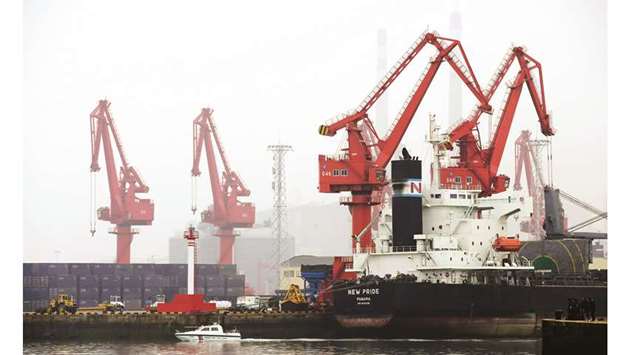China has lifted its crude oil import quotas to allow mostly private refiners to bring in a further 12.9mn tonnes this year, a document seen by Reuters showed yesterday, feeding a new generation of huge refineries.
The third batch of quotas was allocated to 19 companies, including private refiner Zhejiang Petroleum & Chemical Co (ZPC), which was awarded 3.5mn tonnes, the document showed.
Prior to this, China had issued a crude import quota of 153.1mn tonnes, according to Huatai Futures Co, bringing total allowed imports so far this year to 166mn tonnes, a Reuters calculation showed.
“Import quotas have increased overall this year as new refineries are being launched,” said Xiang Pan, head of oil research at Huatai Futures Co.
“The new increase in import quotas is mainly for the newly launched mega-refineries.”
Privately-owned Hengli Petrochemical Ltd ramped up its 400,000 barrel-per-day (bpd) oil refinery to full rate in late May, while ZPC aims to bring online a second 200,000 bpd crude distillation unit (CDU) in the coming months. China imported 369mn tonnes of crude oil in the first nine months of 2019, up nearly 10% from the same period last year, customs data showed, boosted by the startup of new refineries as well as strong fuel demand in the country.
In addition to independent oil processors – known as ‘teapots’ – mostly based in the eastern province of Shandong, provincial government-backed Shaanxi Yanchang Petroleum Group was also granted another 900,000 tonnes in the latest batch of quotas.
That brought its total allocation this year to 3.6mn tonnes.
China’s Ministry of Commerce did not respond to a request for comment.
“Some crude import quotas will be left unused, the same as previous years. Some teapots will not be able to finish their quotas, either because they have credit problems or because they prefer domestic trades,” Huatai’s Pan said.
“This year in the first half margin was poor, especially for gasoline. Although margins recovered in the second half, it is still worse than previous years as the market is competitive and refined oil products are in oversupply.”

A crude oil tanker is seen at Qingdao Port, Shandong province. China has lifted its crude oil import quotas to allow mostly private refiners to bring in a further 12.9mn tonnes this year, a document seen by Reuters showed yesterday, feeding a new generation of huge refineries.
